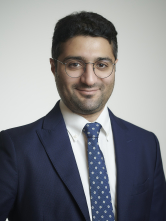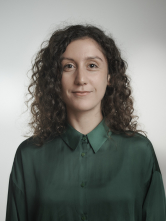How Can Economic Instruments of Climate Policy be Directed through FDI?
24 June 2025 2:00 pm CEST
Join us for the hybrid presentation of the final results of the Jubilee Fund project with Francesca Micocci, Chiara Castelli and Mahdi Ghodsi.
Venue
wiiw Library, second floor, Rahlgasse 3, 1060 Vienna, Austria; hybrid via Zoom
Description
Join us for our upcoming hybrid event where we will delve into the latest findings from our project 'How can economic instruments of climate policy be directed through foreign direct investment?'
Throughout the event, the speakers will discuss the findings of the project which is comprised of three papers:
- Drivers of Foreign Direct Investment in the EU: Regulatory Measures and Revealed Technological Advantage
- Innovation Interactions: Multinational Spillovers and Local Capacity
- Foreign Direct Investment and Innovation Dynamics: The Role of Foreign Corporate Groups and Technological Pathways in Domestic Green Innovation
Don't miss the opportunity to gain valuable insights into the various aspects of foreign direct investments in the EU at the intersection of green transformation and innovation.
This event takes place in the framework of the project 'How can economic instruments of climate policy be directed through foreign direct investment?' which is financed by the Anniversary Fund of the Oesterreichische Nationalbank (Project No. 18800).
The support provided by the Oesterreichische Nationalbank for this research is gratefully acknowledged.
Speakers
Francesca Micocci is a postdoctoral researcher in economics at Roma Tre University. She was previously a research collaborator at the Vienna Institute for International Economic Studies (wiiw). She holds a PhD from the IMT School for Advanced Studies Lucca, during which she was also a visiting scholar at the Centre d’Études Prospectives et d’Informations Internationales (CEPII) in Paris. Her research interests lie at the intersection of econometrics and machine learning, with a focus on both methodological innovation and empirical applications. While her earlier work primarily addressed topics in international economics, she is increasingly involved in the study of public policies through modern machine learning techniques. Her recent work investigates the heterogeneous effects of trade agreements using causal machine learning, as well as the role of local implementation capacity in shaping project performance under the EU Cohesion Policy.
Mahdi Ghodsi is Economist at wiiw where he leads the International Economic research group, with extensive experience in applied econometrics, macroeconomic modelling, and data science, with a particular focus on global markets, trade policy, trade regulations, financial and labour market analysis, migration policy, economics of sanctions, and Iran's economy. He is skilled in leading research projects, developing economic strategies, and providing data-driven insights into economic trends. He holds a Ph.D. in economics from Università Cattolica del Sacro Cuore - Sede di Milano and a second Ph.D. in international economics from the Faculty of Economic Sciences, University of Warsaw. He teaches as an external lecturer at the Vienna University of Economics and Business (WU), and he is a Senior Fellow and Head of Economy Unit at Center for Middle East and Global Order (CEMG) in Berlin.
Chiara Castelli is Economist at wiiw and PhD candidate in Economics at the WU (Vienna University of Economics and Business). Her research focuses on foreign direct investment, multinational firms, innovation and environmental policies. She holds a master’s degree in Economics from the University of Pisa and Scuola Superiore Sant’Anna (2020). Previously, she worked as an economic researcher in several institutions, including the Joint Research Centre of the European Commission, the University of Brescia (Italy) and the Fondazione Eni Enrico Mattei (FEEM, Italy).
Online Participation
To attend at the venue, please register here.
To attend online, please register here.
Related Publications
- Drivers of FDI in the EU: Regulatory distance and revealed technological advantage
- Innovation interactions: Multinational spillovers and local absorptive capacity
- FDI and innovation dynamics: The role of foreign corporate groups and technological pathways in domestic green innovation
- Harnessing FDI for innovation and green growth in the EU: Some evidence-based policy recommendations


